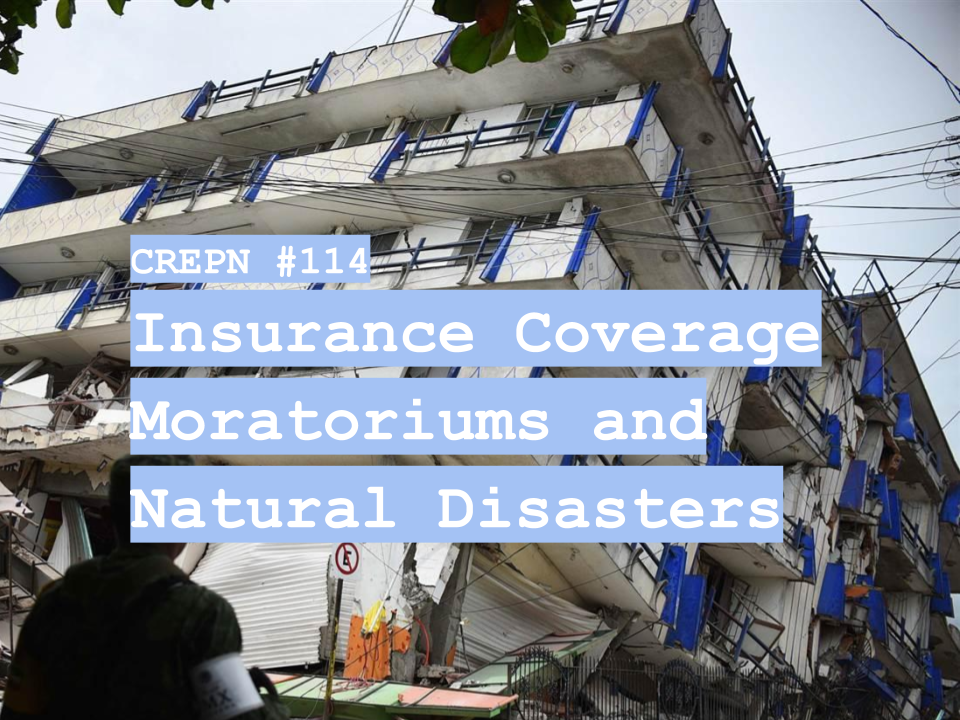19 Oct CREPN #114 – Insurance Coverage Moratoriums
Posted at 07:00h
in
Podcast
by J. Darrin Gross
Insurance Coverage Moratoriums happen daily during late summer and early fall across the US. If there is a natural disaster in action, the insurance companies will close the casino and refuse to take any new bets.
[x_audio_embed][/x_audio_embed]
2017 has been particularly significant. Think about it. There have been:
- Hurricanes in the Gulf of Mexico and the Atlantic Ocean
- Wildfires in the West from hot, dry summer
- And Earthquakes don’t care what the season is.
Insurance companies take premium from policyholders in exchange for a promise to rebuild if certain disasters happen. The company underwrites your risk to do all they can to stay away from risk they do not want. And they collect what they hope is an appropriate amount of money to pay claims when they do happen.
Companies compete for more premium. Investors look for positive return on their money. Policyholders look for ways to save on insurance and increase the return on their real estate investment. The greater the distance between disasters, the cheaper insurance gets.
After several years of infrequent disasters, the cost to policyholders is low, but the risk rises. For every year there is not a significant disaster, statistically, disaster is more likely to happen.
How can you avoid moratoriums?
Don’t wait to purchase your coverage. Purchase your coverage before disaster is eminent, and be prepared.
For Hurricanes you can safeguard your property and make certain you have insurance.
Flood falls into two categories.
- In low lying areas that are expected to flood, you will be required to purchase flood insurance if you are borrowing from a lender.
- If your area is not recognized as a potential flood area, most property owners elect to go without. However, if your property is unlikely to suffer damage from a flood, your coverage will cost significantly less.
Wind is mostly a problem around the Gulf of Mexico and the Eastern shore from Florida north. Insurance is available, but the deductible is a percentage of the limit. This is unlike a standard property deductible which is a flat dollar amount.
Earthquake insurance is directly related to the soil beneath the property and the proximity to a fault line. Like Wind insurance, the deductible is a percentage.
Insurance is never fun to pay for, but don’t let your real estate investment strategy go without it. Build the cost into your operating budget. Don’t bet against yourself. Buy the coverage before there is a moratorium and you cannot purchase coverage.
Prior Episodes for reference:
Seismic Retrofitting http://bit.ly/2yd9PRZCREPN22dl
Earthquake Preparedness: http://bit.ly/2yGmPmaCREPN17dl
How to Save on Flood Insurance: http://bit.ly/2i3suvnCREPN35dl
If you need help on any of your insurance needs, please reach out and I will do all I can to help.
For more, go to:
JDarrinGross.com
[author title=”About the Author”]]]>


